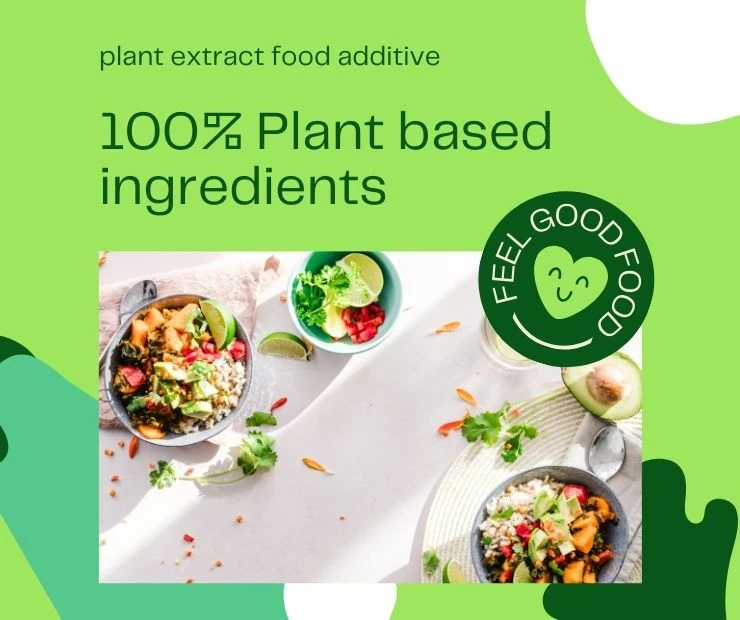There has been a growing trend towards natural and sustainable food additives in recent years. Plant extracts have emerged as a promising solution, offering functional benefits and consumer appeal. Let's explore how plant extract food additives are revolutionizing the food industry.
What are Plant Extract Food Additives?
Plant extracts are food additives derived from various plant parts, including fruits, vegetables, herbs, and spices. These extracts are obtained through processes like solvent extraction, steam distillation, or cold pressing, preserving their natural properties. Unlike synthetic additives, plant extracts are valued for their perceived health benefits and minimal processing.
Benefits of Plant Extract Food Additives
- Natural Flavor Enhancement: Plant extracts add unique flavors and aromas to foods without the need for artificial enhancers. For example, vanilla extract from vanilla beans imparts a rich, natural flavor to desserts and beverages.
- Antioxidant Properties: Many plant extracts contain antioxidants such as polyphenols and flavonoids, which help neutralize harmful free radicals in the body. These compounds contribute to the preservation of food by delaying oxidation processes.
- Health Benefits: Certain plant extracts, such as turmeric (curcumin extract) or green tea (catechins), are known for their potential health benefits. They may possess anti-inflammatory, antimicrobial, or anti-cancer properties, making them attractive additions to functional foods.
- Clean Label Appeal: Consumers increasingly prefer products with recognizable ingredients. Plant extract additives align with this preference, providing clean-label solutions that resonate with health-conscious individuals.
Applications in the Food Industry
Plant extract food additives find application across various food categories:
- Beverages: Natural colors and flavors derived from plant extracts are used in juices, sodas, and alcoholic beverages.
- Confectionery: Extracts like fruit essences or mint oils enhance the taste and aroma of chocolates, candies, and chewing gums.
- Bakery: From cinnamon extracts in pastries to citrus extracts in cakes, plant-derived additives contribute to the sensory experience of baked goods.
- Dairy Products: Natural vanilla, almond, or coconut extracts are commonly used in ice creams, yogurts, and flavored milk.
Regulatory Considerations and Safety
The regulatory landscape for plant extract food additives varies by region. Manufacturers must comply with local food safety regulations and ensure that additives are used within approved limits. Safety assessments typically include toxicity studies and evaluations of potential allergenicity.
Future Outlook
As consumer demand for clean-label and natural products continues to rise, the market for plant extract food additives is expected to expand. Advancements in extraction technologies and increased research into the health benefits of plant compounds will further drive innovation in this sector.
In conclusion, plant extracts and food additives represent a sustainable and health-conscious choice for enhancing the quality and appeal of food products. Their natural origins, combined with functional benefits and consumer preference, position them as key players in the future of the food industry.
Whether you're a consumer seeking healthier options or a food manufacturer exploring innovative ingredients, plant extract food additives offer a compelling solution to meet evolving market demands. Embrace the natural goodness of plants and transform your products with these versatile additives today.







